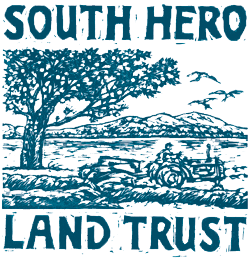A note on racism and equity in our work
October 2020
Dear Friends and Neighbors,
I’d like to expand on some thoughts I first shared in June, in response to this moment of enormous social change, fed by the deep racial and class inequities that the pandemic has exposed, and to the uprising across our country for racial justice.
Since the initial shut-down in Vermont this spring, I’ve taken comfort in many walks in the woods. I have always thought of the outdoors as a place where everyone is welcome—I was devastated to realize that many people are not welcome or even safe in a place that brings me such peace. And my family has eating food from our garden and local farms daily, but I’m newly aware of how few farmers of color own land and farm businesses in our state. The protests against police brutality that have swept the county following the deaths of George Floyd, Breonna Taylor, Ahmaud Arbery, and too many others demonstrate the deep pain and inequity we are facing in the United States.
People of color are fighting for their lives, and it is past time that we all join the fight. Let’s listen to the stories of people of color. Let’s be open to change in our own lives and actively work to dismantle the systemic racism inherit in our institutions and policies. Let’s make sure that black and brown people are welcome and welcomed in our community. Let’s be anti-racist, as individuals and organizations.
Like many leaders of land conservation and community organization, I’m wrestling with how we address inequity in our community today and with the complicated history of land ownership and access in our country. Nick Richardson of Vermont Land Trust summarized this clearly in a letter earlier this year: “from the first land speculators who laid claim to the lands of the Abenaki people; to campaigns in the early 20th century that recruited white people of northern European descent to visit, settle, and farm in Vermont; to the Vermont Eugenics Program which targeted poor, disabled, and Abenaki people; white landed Vermonters have benefited from systems and structures that have long excluded people ‘unlike them’ from this land.” The land conservation movement has historically been led by a predominately white group of people, and is still today. The stories and vision of people of color are missing, and conservation projects often primarily benefit white people.
Addressing this history and the current disparities in our communities is challenging and ongoing work. South Hero Land Trust is committed to this work, beginning with learning and with reviewing our practices and activities through new eyes. We have always been committed to projects that serves our community, but if we want to serve those who need us most, we need to rethink how we do this work.
As I wrote in June, I am not an expert. I have no solutions. I will probably make many mistakes along the road, and I hope you will forgive me for them. I am committing to listening, to learning, and to responding with love. I am committed to standing in solidarity with people of color across our nation, as an individual, and as the leader of a community organization. I hope you will join me.
In Hope,
Emily Alger
Executive Director
